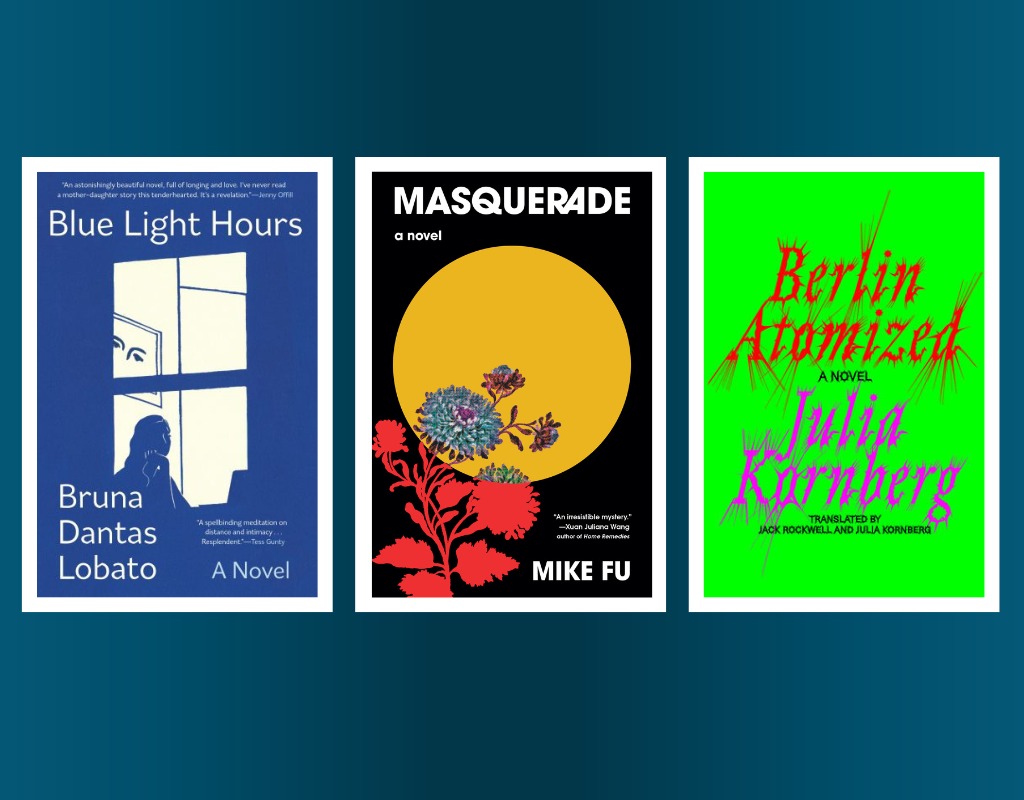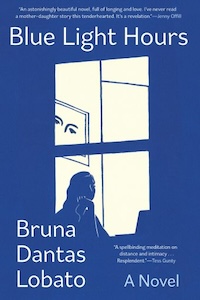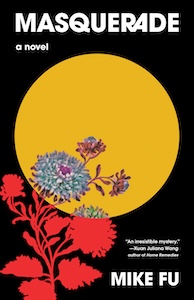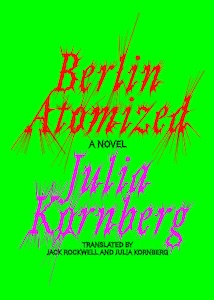Writing fiction itself might be (and often is) considered an act of translation: from experience to language, from emotion to logic, from chaos to legibility. Perhaps it is a mere coincidence, or a stroke of good luck, then that these three fall debut novelists selected for our craft series each have backgrounds in literary translation. However, I believe it’s more likely due to probability—the probability that an interest in language’s borders and bridges leads to an investment in the art of translating not only between cultures but translating what it means to be human and ephemeral, then transforming this into something that sounds like a story.
Each of the three novels by our interviewed authors this fall revolve around desiderum, nostalgia, and characters who are reaching for the past at the same time as they reach for a future. They inevitably become caught, paralyzed, between the two. Although it’s not only time which these characters become trapped within but place as well: from a dorm in Vermont to a Skype scene of Brazil; from contemporary Brooklyn bars to a masked ball in 1930s Shanghai; and from Buenos Aires to Paris, Brussels, Tokyo, and the end of the world. These novels all cleverly and masterfully use craft to play with the faulty dimensions of geographic, linguistic, and temporal boundaries as somehow the circumferences of each slowly fade away.
At last, our craft interview features the following writers who have published their debut novels in the U.S. this fall: Bruna Dantas Lobato, the author of Blue Light Hours; Mike Fu, the author of Masquerade; and Julia Kornberg, the author of Berlin Atomized. Lobato, Fu, and Kornberg spoke with me about the genesis of their projects, the excruciating infatuation stage of the first draft, and how their backgrounds of translating infused their experiences of writing their own novel.
Kyla D. Walker: Which came to you first for Blue Light Hours—the idea or the characters/voice?
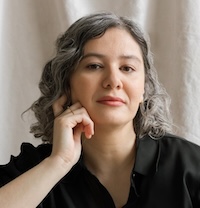
Bruna Dantas Lobato: My two protagonists first came to me when I was a senior in college. I was homesick and struggling to keep in touch with my own mom in Brazil. I pictured this mother trying to catch a glimpse of her daughter’s life in the U.S. through Skype and the daughter tilting her computer screen to show her mother the view outside her window. Something about the glare of the window on the screen captured how little the mother knew about her daughter’s new life for me, how this mother would never be able to scratch its surface from where she was sitting. I could see them and hear them very clearly, and I kept writing about them, though I’d only realize this could maybe be a book a few years later, once I found a shape for their stories.
KW: Blue Light Hours has a stunning minimalistic tone and is written in gorgeous, spare prose with evocative emotions spilling across what remains unsaid between mother and daughter. What was it like writing the dialogue and the conversations between these two characters? Was it difficult to capture that yearning essence and absence on the page?
BDL: Thank you so much. I would often get a line of dialogue stuck in my head, then I’d pull at it until I got to the next line, then the next. It sometimes took me months to figure out how the conversation was meant to be structured or what it wanted to be about, but then when I got there the meaning didn’t always need to be spelled out. Their yearning was already there, soaking the language, and if I announced it too much, I only risked diffusing it. One of the main failings of video calls as a mode of connection for my characters is how everything needs to be said out loud, how the only way to keep each other company is through language, when in real life they could just spend time together without relaying it. They could sit in silence, chop vegetables, watch a movie. No amount of language can replace that.
KW: What was your favorite part of the writing process for this novel? How long did it take from start to finish?
BDL: It took me seven years to get to a finished draft, partly because it was so difficult to invent a form to contain this kind of immigrant story where the protagonist doesn’t just move forward in one direction, toward a new life of Americanness, but that also gestures back, toward home, toward her everchanging relationship to her own people. This was the hardest and also the most rewarding part of the process for me, rethinking the rules of craft that didn’t serve the story I was trying to tell. I spent a lot of those years wondering, What if my characters’ concerns aren’t obstacles meant to be overcome? What if their grief doesn’t reach a climax but accumulates instead? What if their pain can’t reach an end but is continuous? Is there room for a story like that, is there even a way to tell it as a novel?
KW: How has your background of being a literary translator affected your approach to writing fiction and this novel specifically?
BDL: It’s made me more confident as a writer, pushed me to think about narrative possibilities beyond American conventions, emboldened me to take risks. I’ve tried my hand at so many different voices, styles, genres, and modes of being through translation over the years. I love that I get to be a different kind of writer from time to time, that I get to spend time with another writer’s concerns. And then when I’d go back to my own novel, I’d feel like it was a place where I could ask the questions I hadn’t been able to explore anywhere else, a place to ask the questions that maybe only I could ask.
Kyla D. Walker: Did you write the novel with an outline or ending in mind?
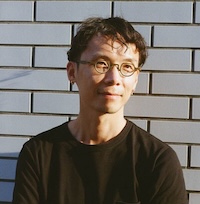
Mike Fu: I had a vague sense of the major beats of the novel and some of the character dynamics, but didn’t work with anything as substantive as an outline. Both the beginning and end were a struggle in many ways; it took me multiple tries to figure out how to frame a story of this length. Even now, I’m not quite sure I stuck the landing—I certainly learned a lot, though.
As excruciating as the writing process itself was at times, it was equally pleasurable when the characters began to take on a life of their own. There were rare occasions when I could dive back in and coast on the dramatic momentum that had already formed on the page. It felt like a direct pipeline into my subconscious, and to see these wispy notions and images gradually cohere into something more solid was thrilling.
KW: Masquerade plays with time in its form and also speaks on the idea of experiencing time differently late at night. What was it like capturing this motion and mood on the page?
MF: There is often a sense of artifice in the nocturnal world that becomes most conspicuous in the early morning hours—doubly enhanced by solitude and sobriety, I’d say. I’m not much of a night owl these days, to tell the truth. But in writing this novel, I tapped into all these memories of wandering around the city at some ungodly hour. Everything seems so unnervingly still late at night; it’s like moving through a simulation.
You might stumble into the same atmosphere when you have to get up before sunrise, for an early morning flight, let’s say. The magic of long-haul international travel is something that still amazes me. We’ve been conditioned to think of it mostly as a wretched experience. But there’s something fantastic and surreal about the way time flows when you’re crossing all these invisible and arbitrary markers in the sky, over the ocean, en route to a destination thousands of miles away.
KW: What did revision look like?
MF: Revision was a hefty, exhausting, but ultimately exhilarating project. I only did one full sweep completely on my own, just a few months after completing my first draft, before starting to query agents. In retrospect, I wish I’d gotten more feedback and thought more seriously about a major structural overhaul at that early stage.
Luckily, I was able to connect with Heather Carr, my agent, who understood intuitively what I was trying to achieve, despite the messy sprawl of my manuscript. I should mention that the title of the novel, the content of the book-within-a-book, and some other narrative elements were of a completely different nature when I was querying.
Heather and I spent around ten months editing, going through four substantially different drafts that each had its own beginning and ending. I felt emboldened to dramatically shift the shape of the novel through our dialogue, and actually rewrote the characters and plot arc of the book-within-a-book several times. The bulk of Masquerade remained the same once I started working with Tin House, but my editor Elizabeth DeMeo helped me finesse the beats within and the conclusions of certain chapters. She also had an amazing eye and ear for picking up on specific words or locutions that I overused and helped me tighten up the whole manuscript.
It’s such an intensely intimate experience to collaborate with others on a project of this length, in terms of both word count and duration of time spent on it. I felt immensely privileged to have the likes of Heather and Elizabeth, among others, devoting generous amounts of time and energy to carefully reading (and prodding at) a world that had remained purely a solipsist affair until then.
KW: How has your background of being a literary translator affected your approach to writing fiction and this novel specifically?
I vacillated somewhat on how much to incorporate translation as part of the protagonist’s experience of the events in the novel, and ultimately dispensed with it, or reduced it to a minor plot point. In the few excerpts of the book-within-a-book that I share in Masquerade, I did try to parrot a certain kind of diction commonly seen in English translations of early 20th century Chinese literature. Yu Dafu’s Nights of Spring Fever, translated by Tang Sheng, Gladys Yang, and others—a story collection I read and loved long ago—was one inspiration. And certainly there were quite a few parts of this book-within-a-book where I thought carefully about how a character, scene, or line of dialogue might have been conveyed in Chinese, or expressly used a Chinese idiom that I glossed or “translated” into English.
I find it incredibly freeing to write in English. It’s my native language, though not my first, and the only one in which I feel confident in molding and manipulating sentences to this degree. Chinese is that much more laborious, and I am not at all as fluent or literate as I’d like to be. For me, translation is just a matter of being meticulous: shaving off a word here and there, reordering a set of clauses, deciding when it’s necessary to move toward less literal interpretations. And knowing how to ask for help, or where to look for help.
I lose that degree of meticulousness when writing my own in English, at least in the first draft. I just want to get it out, the basic shape of it. Thank God for editors!
Kyla D. Walker: What was the genesis/inspiration for Berlin Atomized?
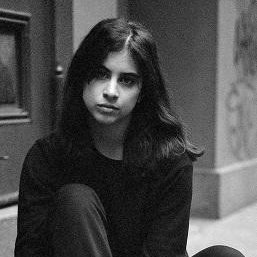
Julia Kornberg: Initially, I conceived Berlin in the winter of 2016–2017, which was the South American summer. I was twenty years old at the time, was living in Buenos Aires, and I went on a backpacking trip that lasted for around two months. Maybe inspired by the displacement of traveling so precariously (couch surfing et al), I started to create short stories about a declassé family scattered all over the world, barely connected through time and space. I met a young man in Jerusalem on New Year’s Eve who had a very interesting life story, and he became a model for Mateo, whose chapter I wrote first. Then I started working backwards from there and integrating some of the places I visited and people I was meeting to the stories. By around March 2017 I had completed the collection, and I submitted it to a short story award. The judges were very graceful to give it an honorable mention, but they also remarked on the fact that it was more a novel than a collection of short stories. From there, I started polishing the book to turn it into a proper novel, making the “stories” into interlinked chapters, and that’s what eventually became Berlin.
Something else that I think loomed at the horizon in Berlin, even though it hadn’t happened at the time, was my parents’ nasty divorce. In retrospect, I wrote a novel about a dismembering family and how their children strive to stay close to each other, which is sadly what happened upon my return to Argentina, in 2017: my father left my very urban family and moved to a gated community in the countryside, starting a new life with a new family and sort of disappearing from ours. So, I think there was a darkness starting to appear in family ties that I also took as an initial inspiration to Berlin, even though the Goldsteins’ experience is very, very different from mine.
KW: Did you write the novel with a general outline or specific ending in mind?
JK: Usually when I write a long project, I only have a very faint idea of what the ending should look like. I knew that I wanted history to get grimmer and the Goldsteins’ lives less sheltered and isolated, and I knew I wanted their family to become more dismembered as time went on, but that was as far as I went. Then, as I wrote it, I was able to figure out more and more details—I usually have to actually put pen to paper in order to get a better idea of who these characters are and where they are going. If I make a scaffold of the novel, unless it’s a very loose one, I usually end up discarding it.
KW: What was your favorite part of the writing process for Berlin Atomized? And how long did it take from start to finish?
JK: In a very specific way, writing a novel is like falling in love—everything you do or say, everything you see and the people you meet brings you back to your crush or, in the case of Berlin and other novels I’ve written, to what you’re writing. That’s a thrilling thing to feel—you’re like a sponge taking everything in, metabolizing it into your literature. Then, once you sober up, you have to start correcting, editing, and changing what your idiotic past self has done into something that makes sense.
I would say that the infatuation period for Berlin, the original writing of the text, lasted about four months in 2016–17. Then I revised it once or twice over the years, until it came out in 2021. There were two other revisions for the translation, maybe three, until 2023. So, to be perfectly honest, I don’t know if the novel will ever be finished, or if I’ll keep revising, adding, and subtracting minor details until the end of time.
KW: How has your background of being a literary translator affected your approach to writing fiction and this novel specifically?
JK: I am not a literary translator at all, except for the casual essay translation here and there, but I have studied translation and work on it for my dissertation, so I’m fairly close to it conceptually and I have seen some of my favorite writers exercise it. That gave me and my translator Jack tremendous freedom—we know what some of the main problems of translation are, what people look for in a translation, how people have historically approached it, and we were able to work around it freely, feeling very little constraints. We don’t have a “sacred” vision of the original or of what translation should be, and the fact that I was involved in it and able to approve the changes or creative jumps in translation allowed for it to be a pretty heretic translation. It was a very playful, very fun process, perhaps also fueled by the fact that we are friends.
Read the original article here
